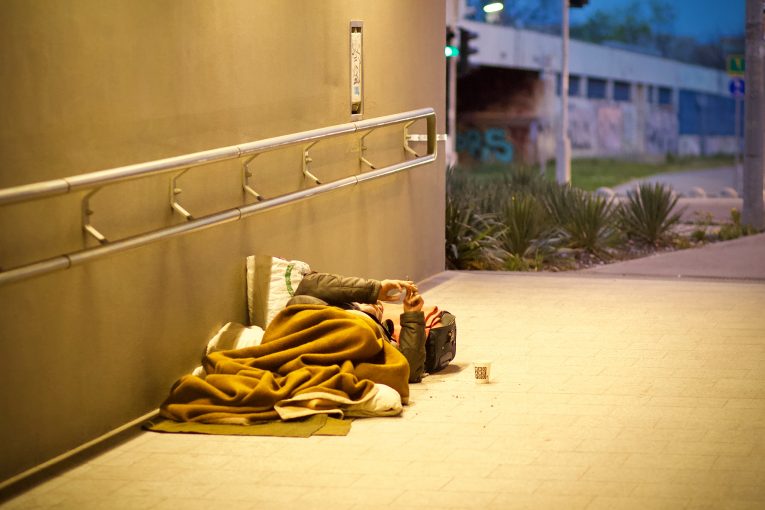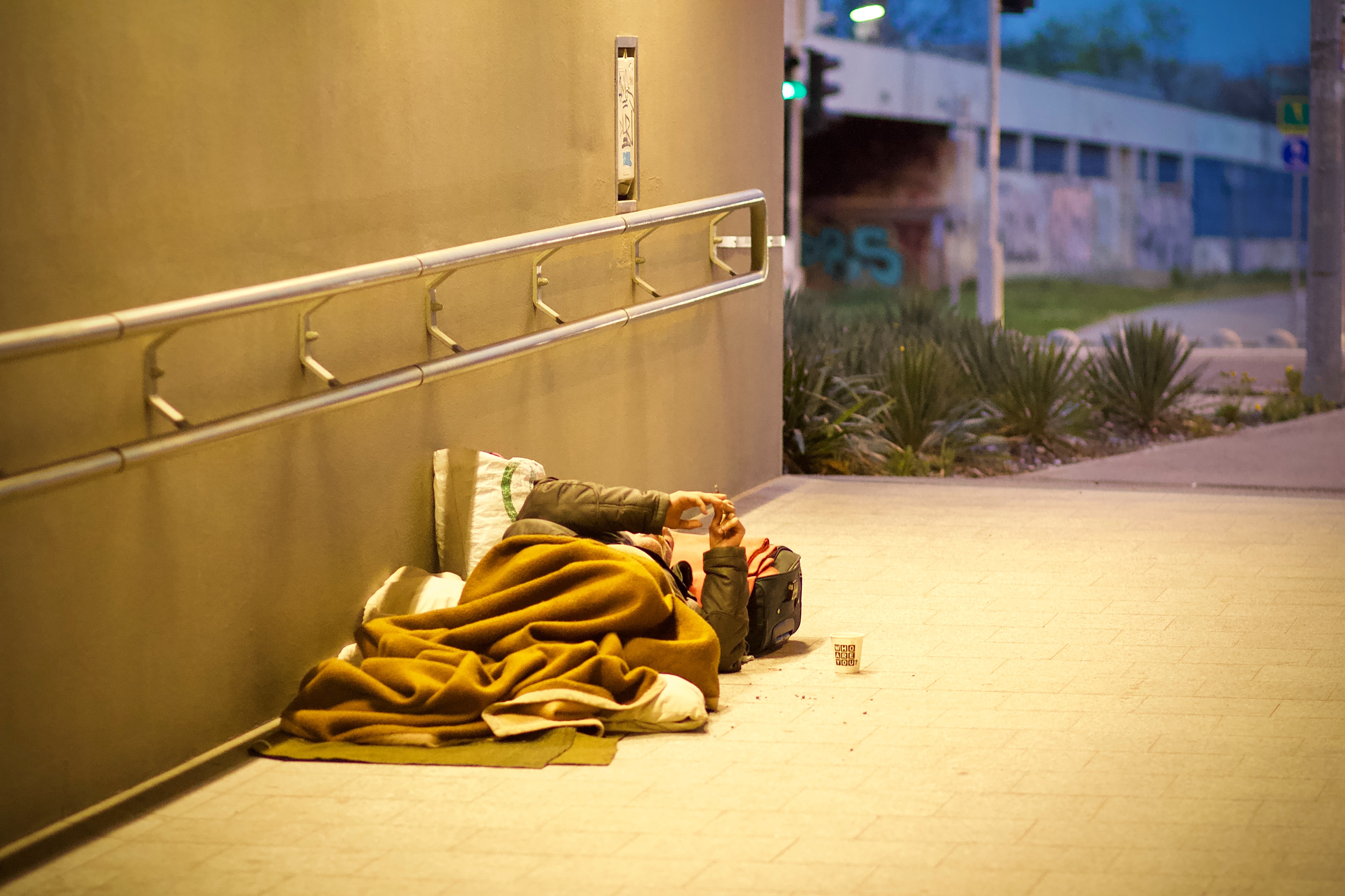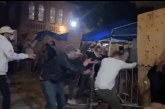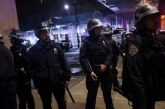

Special to the Vanguard
Sacramento, CA – This week, Governor Gavin Newsom announced multiple new efforts to address homelessness and provided an update on the state’s work to deliver more than 1,200 small homes to communities throughout California.
The Governor’s office believes that the latest announcements “advance the Administration’s multipronged and multi-billion dollar approach, using every tool available, to address the needs of individuals experiencing homelessness, including moving people in need of assistance off the streets and into housing. “
Governor Newsom said, “The state’s homelessness crisis has been decades in the making. While there’s more work to be done, we are challenging the status quo with new, innovative solutions to get Californians off the streets and into housing.
Critics, however, have questioned whether it is enough and others have criticized the  administration for its spending priorities.
administration for its spending priorities.
Administered by the California Department of Housing and Community Development (HCD), this latest $179.7 million in grants for Homekey will create 710 units through nine developments in Fresno, Los Angeles, Modesto, Sacramento, San Buenaventura, San Diego and Visalia.
The administration notes, “This announcement builds upon a $736 million investment to address homelessness statewide through the acquisition and construction of interim and permanent homeless housing. With this additional round of funding, total Homekey units have expanded to 13,484 homes throughout the state.”
In addition, they argue, “the largest delivery of small homes in state history continues to gain momentum.”
Since an announcement earlier this year by Governor Newsom to purchase 1,200 small homes, the Administration believes it “has made significant progress in working with local governments to deliver these units throughout the state.”
“Gov. Newsom’s office has been working closely with the city and county of Sacramento to build a tiny home village on Stockton Boulevard that will be a model for the rest of the state,” said Sacramento Mayor Darrell Steinberg.
He added, “Residents will be embedded in a community wellness campus specializing in substance abuse disorder treatment and mental health care. This combination of housing and assertive treatment is the recipe for helping our unhoused neighbors and providing relief to our neighborhoods.”
Small Homes Progress:
- In July, the Legislature approved, and the Governor signed into law, trailer bill legislation allowing more flexibility by the state to streamline this effort and get units on the ground faster.
- Sacramento continues to move forward with the selection of two locations: Cal Expo in Sacramento and newly announced Wellspace on Stockton Blvd.
- San Jose has selected and approved a location in partnership with the Santa Clara Valley Transit Authority to provide land for all 200 of their small homes.
- The state has advanced a procurement process for both the state and local jurisdictions that saves time and cuts red tape to speed up a process which is often time consuming and costly.
- The state has moved quickly to complete contracts to execute the purchase of small homes. Purchases could begin as early as the end of October.
- With the support of our local partners, the state anticipates the first groundbreaking to take place before the end of the year.
The Governor also signed the following legislative measures to help address homelessness:
AB 42 by Assemblymember James Ramos (D-San Bernardino) prohibits a local agency from imposing or enforcing any requirement to install fire sprinklers for temporary dwelling units with a total floor area of less than 250 square feet meeting specific criteria.
AB 785 by Assemblymember Miguel Santiago (D-Los Angeles) provides CEQA exemptions for certain activities undertaken by the City and County of Los Angeles and other eligible public agencies related to affordable housing, low barrier navigation centers, supportive housing, and transitional housing for youth and young adults.
AB 1285 by Assemblymember Buffy Wicks (D-Oakland) requires continuums of care that share geographic boundaries with a city or county using state funding allocated pursuant to round five of the Homeless Housing, Assistance, and Prevention (HHAP) program or the Encampment Resolution Program (ERP) funding to additionally include in their regionally coordinated homelessness action plans evidence and an explanation of their collaboration with the city or county that specifies how people served through encampment resolution have or will be included in prioritization for permanent housing within coordinated entry systems.
AB 1377 by Assemblymember Laura Friedman (D-Los Angeles) requires applications or planning materials for state funding through the Homeless Housing, Assistance, and Prevention (HHAP) program appropriated on or after July 1, 2024, to include data and a narrative summary of quantifiable steps that the applicant has taken to improve the delivery of housing and services to people experiencing homelessness or at risk of homelessness on transit facilities owned and operated by a transit agency.
AB 1469 by Assemblymember Ash Kalra (D- Santa Clara) authorizes the Santa Clara Valley Water District to assist unsheltered people living along streams, in riparian corridors, or otherwise within the district’s jurisdiction, in consultation with a city or the County of Santa Clara, to provide solutions or improve outcomes for the unsheltered individuals.
AB 1607 by Assemblymember Wendy Carrillo (D-Los Angeles) allows the Los Angeles County Affordable Housing Solutions Agency to transfer a portion of revenue raised by a tax measure to the County of Los Angeles for programs that provide support and services to prevent and combat homelessness.
AB 1679 by Assemblymember Miguel Santiago (D-Los Angeles) authorizes Los Angeles County to impose a transaction and use tax that exceeds the 2% statutory limitation, and requires all revenue from the tax to be dedicated to addressing and preventing homelessness.
SB 91 by Senator Tom Umberg (D-Santa Ana) eliminates the January 1, 2025, sunset date on a provision of state law that exempts certain projects from CEQA that convert a motel, hotel, residential hotel, or hostel to supportive or transitional housing. SB 91 also extends CEQA streamlining provisions for “environmental leadership transit projects” located within the County of Los Angeles that meet certain specified requirements.





